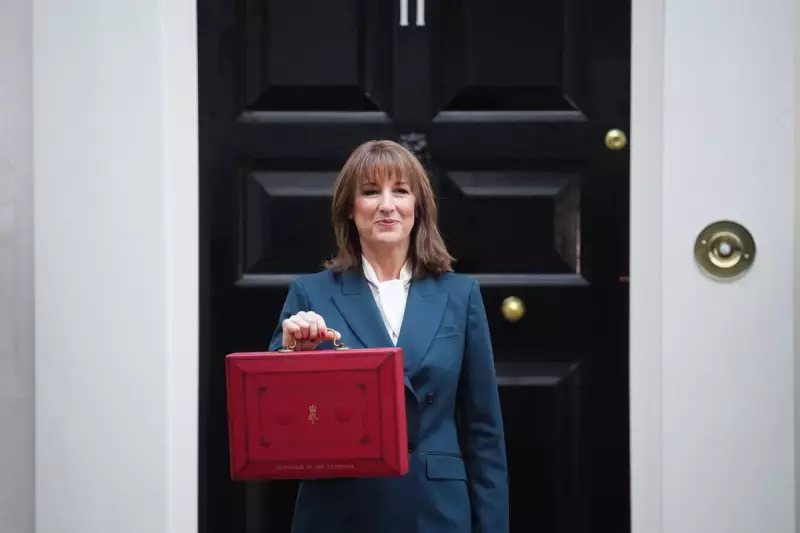
Chancellor Unveils Comprehensive Budget Amid Economic Challenges
Chancellor Rachel Reeves has delivered her second budget to the House of Commons, confronting what she described as a "black hole in the public finances" while focusing on her three key priorities: reducing living costs, cutting NHS waiting lists, and managing the national debt.
The Chancellor emerged from 11 Downing Street with the iconic red box on Wednesday morning, acknowledging that many Britons feel "angry at unfairness" in the economy despite some progress over the past year.
Tax Measures and Revenue Raising
In what's being termed a 'smorgasbord' approach to taxation, the Chancellor has opted against a direct income tax increase but will extend the existing freeze on income tax thresholds. This measure, combined with maintaining national insurance thresholds at current levels, is projected to raise approximately £8.3 billion annually for the Exchequer by 2029/30.
Additional revenue-raising measures include:
- A new levy on high-value properties worth over £2 million, affecting approximately 100,000 homes across council tax bands F, G and H
- Potential limits on pension contributions through salary sacrifice schemes
- Extension of anti-fraud measures targeting universal credit payments, expected to raise £1.2 billion by March 2031
- Reduction of the annual cash ISA limit from £20,000 to £12,000
Wage Increases and Cost of Living Support
Millions of low-paid workers will receive a welcome boost as the government confirms significant minimum wage increases effective from next April. The National Living Wage will rise by 4.1% to £12.71 per hour for workers aged 21 and over, providing approximately 2.4 million workers with an annual increase of around £900 for full-time employees.
Younger workers will see even larger percentage increases, with the rate for 18 to 20-year-olds jumping 8.5% to £10.85 per hour, narrowing the gap with the adult rate. Apprentices and 16 to 17-year-olds will receive a 6% increase to £8 per hour.
Other cost of living measures include:
- Rail fare freeze, saving commuters on expensive routes over £300 annually
- Prescription costs frozen at £9.90 in England
- Fuel duty cut maintained with no inflation-linked increase
- Scrapping of the two-child benefit cap that restricts child tax credits
Economic Context and Growth Forecasts
The Chancellor faces a challenging economic landscape, with reports indicating that the Office for Budget Responsibility has downgraded its growth forecast for 2026 and subsequent years leading up to the next expected election in 2029.
Ms Reeves acknowledged the difficult inheritance, stating: "I have to be honest that the damage done from austerity, a chaotic Brexit and the pandemic were worse than we thought."
Despite these challenges, the government has pointed to some positive indicators, including wages rising faster than inflation and hospital waiting lists beginning to decrease.
Additional Budget Measures
The budget includes several sector-specific initiatives designed to stimulate particular areas of the economy:
- £1.3 billion added to electric vehicle grants, providing up to £3,750 off purchase prices alongside £200 million for charging point rollout
- New powers for English mayors to implement local tourist taxes on accommodation to fund regional projects
- Extension of sugar tax to pre-packaged milkshakes and lattes, closing the exemption for milk-based beverages
- Increased scrutiny of budget leaks, with the Chief Secretary to the Prime Minister reading "the riot act" to government insiders
Protest and Political Reaction
The budget announcement was preceded by visible protests, with farmers bringing tractors to Westminster despite a police ban on agricultural machinery in the area. The demonstrations focused particularly on proposed inheritance tax changes that farmers fear could "cripple small family farms."
David Gunn, an arable farmer from Kent, expressed concerns about multiple pressures facing the agricultural sector, including production costs, retail prices, and food security issues.
As the detailed measures are examined in the coming days, the Chancellor's comprehensive package aims to balance fiscal responsibility with support for households and businesses during a period of continued economic uncertainty.





